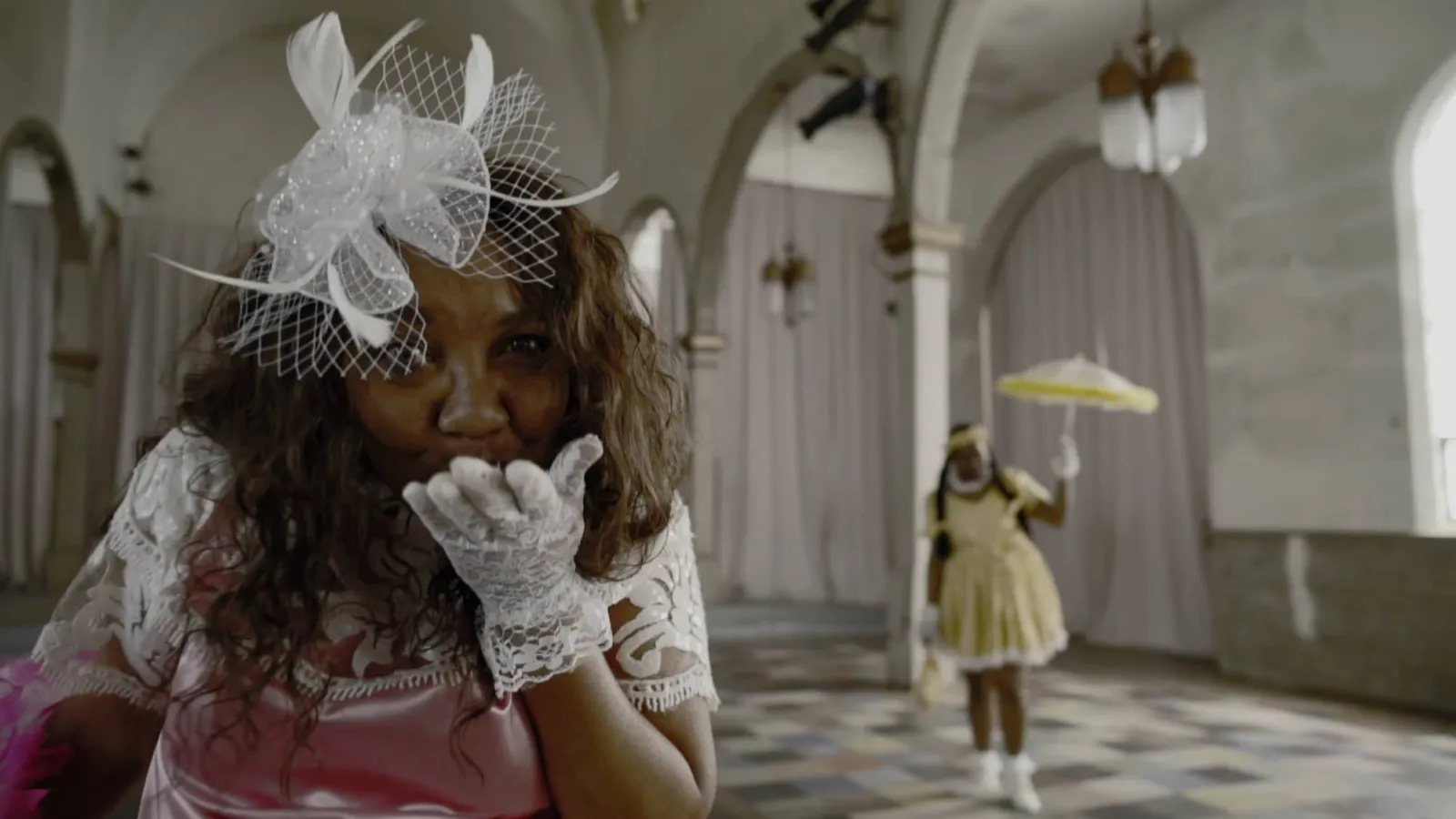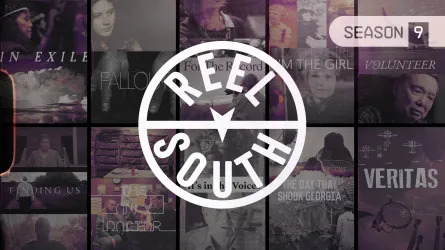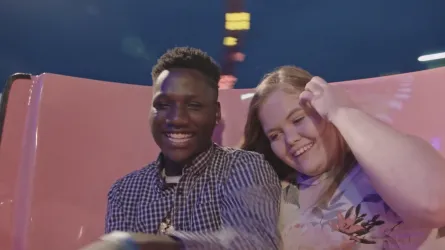In Reel South's latest short film release, filmmaker Vashni Korin introduces audiences to the Mardi Gras Baby Dolls, a group of Black women in New Orleans, who don masks in a ritual that brings together the spiritual and physical lives of the women each Carnival season. Prior to the premiere of "You Can't Stop Spirit," Korin spoke with Reel South's series producer Nick Price.
Nick: You went to college in New Orleans. How long have you been wanting to/thinking about making this film?
Vashni: I was introduced to the Baby Doll tradition at the Xavier University of Louisiana through the former dean and scholar on the Dolls, Kim Marie Vaz-Deville. In my senior year of college, I was inspired by her research and my former Professor Tia Smith’s women’s studies film program and began following the dolls around. This was in 2016 so this topic was on my heart for about 6-7 years until I finally created a concept around a short film.
Nick: There have been so many Mardi Gras films made. I'm curious about how you position the audience and yourself in this story specifically. The film is part personal love letter and part ethnography, and I think you used several devices to balance the two. Can you talk about tapping into your lens/voice while letting these women tell their own history?
Vashni: The film works to speak to myself and other women who have struggled with listening to their inner voice. There are many affirmative and uplifting messages in the piece that was intentional. I want viewers to have actionable advice from the elders and from the dolls because they are women who utilize their connection to tradition and their own womanhood in order to rise above any circumstances. In interviews, I asked what advice could you lend me as a young woman? I became the audience. During the time I was making YCSS I was healing from a lack of self-belief and a few unhealthy relationships that really affected my bravery. I was in search of answers on how to be unapologetic, to stand up for myself, and I learned so much from these women as examples. I knew I wasn’t the only one who needed courage so I weaved the narrative with phrases that would empower women.
Nick: Can you tell us about your first experience with Mardi Gras and the Baby Dolls?
Vashni: After filming the dolls for years I had been asked to join the Wild Tchoupitoulas tribe by Queen Shannon Paxton. I spent hours embroidering, gluing, and conceptualizing who I wanted to be. That’s the importance of time, of process. Becoming can’t be half-stepped. Shannon would tell me, “Look at her real closely, look at your doll and see who she is, think about who she wants to be."
It’s about representing the real possibility of an extended existence. Masking is being what you want to be in the natural world, playing it out in the supernatural, then the selves meet somewhere in between. This creates new possibilities for future endeavors because what you are doing is inching yourself towards your purpose—self-actualization.
On Mardi Gras day I truly felt transformed. Everyone smiled, photographed us, and complimented us—it was like a beauty pageant in the street. We danced, shimmied in the street, and raised our umbrellas. I learned that the ritual of Baby Dolling allows one to proclaim their feminine power.
Nick: The editing of this film is a mix of really quick, dramatic cuts followed by lyrical whimsy and extreme closeups. What do you think this approach accomplished?
Vashni: By utilizing extreme close-ups, and quick cuts I hope to bring the viewer into the dream world that New Orleans often submerges us into. I want people to feel close to each woman, to feel their joy and their pain, and to have empathy. Empathy increases our understanding of one another and when we begin to do that I think we have a shot at a balanced world.
Nick: These women speak a lot about the lore of this tradition. These are the truth-tellers for their community. But we only see them in this very limited moment in their lives. They're performing a ritual. What were the challenges in telling a story rooted in the personal ritual while trying to shape fuller narratives?
Vashni: When you perform a ritual there are some things that are private and not for the camera, viewer, or even an ear. Throughout the process I respected that and used that privacy to influence my creative choices through shooting close-ups of hands, omitting on-camera interviews, and really building a visual mystery around the film. The reason I think rituals are private is because it’s different for everybody. Everyone shows up on this earth needing and being drawn to different things and the process or journey is for each individual to set out and accomplish. I hope that this film inspires people to connect to their internal truth.
Nick: What are you working on next?
Vashni: I am currently working on a film funded by Tribeca Film Institute on a personal short documentary bringing forth black representation in Puerto Rico. Morena highlights and celebrates Afro-Puerto Rican women who are using their connection to plant life, African spirituality, and tradition, Bomba dance, and art as a mechanism to heal through hardships but also to empower themselves and others across the Latin American diaspora.
Category
Share


